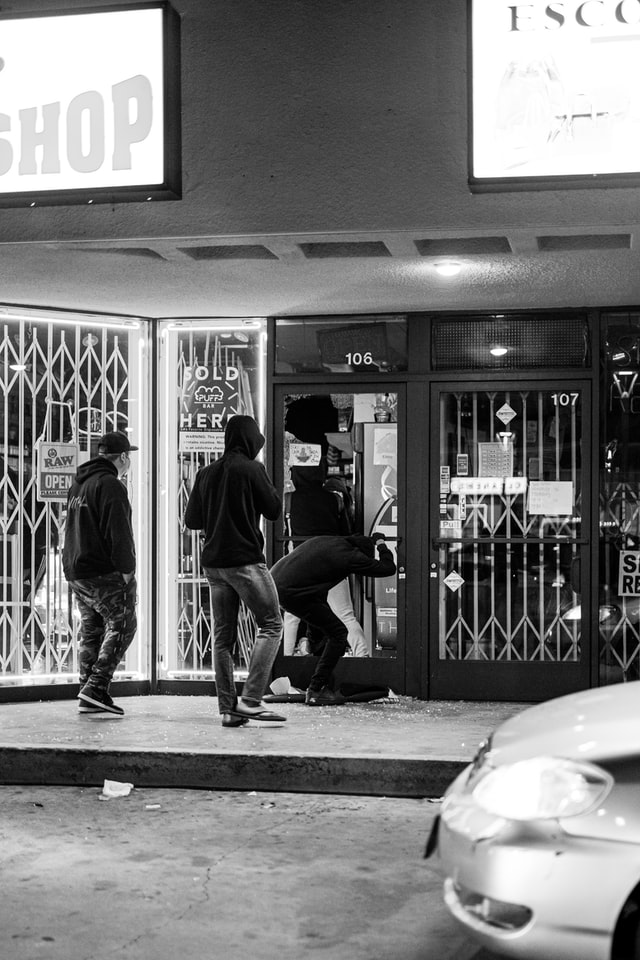Skyrocketing rates of violent crime, smash-and-grab flash mobs and a high-profile mass murder are creating a backlash against criminal justice reform.

Of all the immutable laws of the physical universe, one in particular has haunted society and human civilization since the dawn of time.
Gravity may have ground us down like ancient, ancestral mountain ranges; thermodynamics may have launched the Industrial Revolution and a thousand airships; but it is Newton’s Third Law of Motion which is humanity’s scientific forebear.
For every action, there is an equal and opposite reaction- or “no good deed goes unpunished,” if you prefer the modern colloquial- this is the force that shapes the days our lives.
Understanding this primeval push-and-pull is the key to seeing larger patterns underpinning society.
For instance, vying and opposed forces like conservatism versus progressivism have varyingly dragged and/or prevented mankind from being dragged out of the old and into the new. Town and country have been fighting over human society, too. First the pendulum swings one way, until it goes too far, then it ossifies back on itself and swings almost as wildly in the opposite direction.
Action, reaction.
The secret to making progress in one direction or the other is to move society so slowly in that direction as not to provoke an equal an opposite reaction from the opposing forces. Such a force, if triggered, tends to undo whatever progress may have been made, and then some.
Examples of this are splattered across the pages of history. They cross many cultures, appear over vast swaths of time.
For instance, after the Shah of Iran tried to modernize the country too quickly in late 1970's- he banned the veil- the forces of conservatism came roaring back, deposed the progressive Iranian government and installed the religiously conservative Mullahs who still rule the country today.
The licentiousness and criminality spawned by the rise of recreational drugs in the 60’s provoked an equal and opposite reaction from lawmakers and law enforcement agencies who have been declaring their unsuccessful war on drugs ever since.
During the height of the crack-cocaine epidemic in the 1990’s, crime in the U.S. had risen to the point that politicians campaigning on law-and-order platforms cleaned up. Things in New York City were so bad in those days, the navy-blue city elected a Republican Mayor.
Fast forward to 2021 and crime, after 18 months of pandemic lock-downs, social distancing, masking, quarantines and closures, is approaching the same code-red levels of those bad old days.
What this means for the future of criminal justice reform efforts in the U.S. isn’t hard to imagine. Post-1990’s crack-downs on crime gave rise to some of the misguided criminal justice policies- like “three strikes” sentencing laws- which have contributed so much to over-incarceration and racially-biased sentencing in America.
Between the news that murder is up 30%, high-profile mass looting incidents constantly making the news, and the recent massacre at a Christmas parade, prospects for criminal justice reform in 2022 are looking pretty grim.
Rather than back off in the face of increasing, and increasingly high-profile crime, far-left progressives who want to “defund the police,” refuse to budge a single inch in the name of public safety.
It was with horror that many serious criminal justice reform activists looked upon calls to “defund the police” or “eliminate cash bail” last summer; any such measures, they knew, would set back their efforts.
The public mood for criminal justice reform, especially in the wake of the murder of George Floyd, is hearty; for criminal justice reform at the cost of public safety, there is no appetite at all.
To not provoke pushback, progressives clamoring to “defund the police,” needed to show that criminal justice reform and safer streets weren’t mutually exclusive concepts.
Progressives haven’t done that.
Linking in the mind of the average swing voter the idea that progressive criminal justice reforms and Democratic Party prosecutors are going to release murderers and attempted-murderers back out onto the street faster than police can arrest them is pure poison at the ballot box. It is also detrimental to efforts to undo the injustices done in the name of safer streets the last time the U.S. grappled with the problem of rising crime.
Unless progressives want to see the rate of mass incarceration in America increase, it is time to listen to communities suffering under the weight of untested progressive reforms and rising rates of violent crimes.
To ignore this action, and the opposite reaction it is sure to provoke, would be a miscalculation of the highest order. Progressives might soon find themselves at odds with average Democratic voters who don’t want mass incarceration or a 30% increase in the murder rate.
And are determined to vote for anyone who promises to deliver both.
(contributing writer, Brooke Bell)